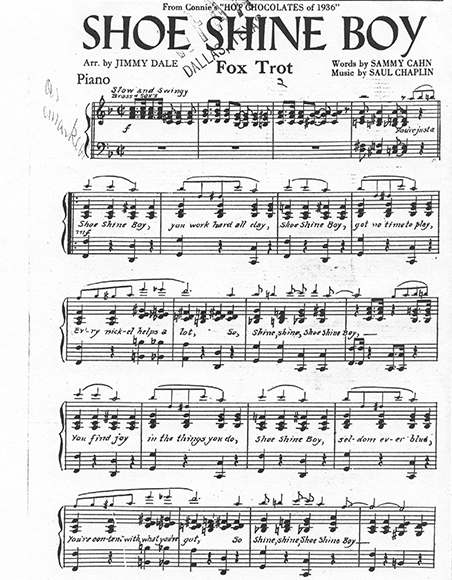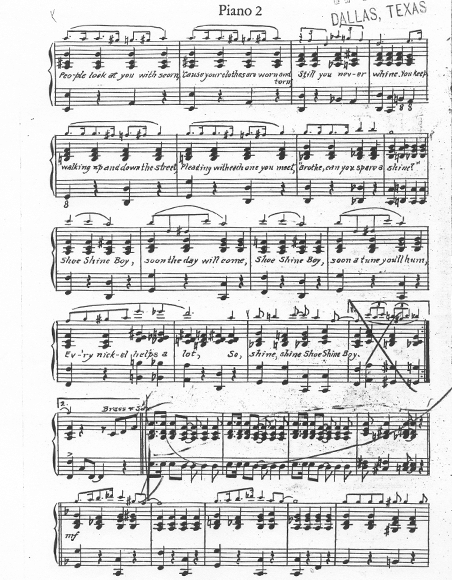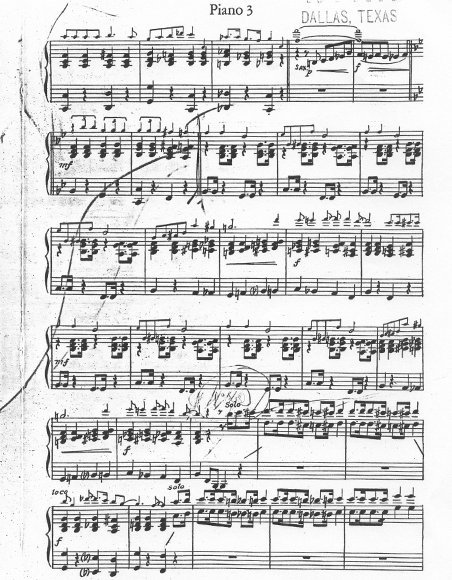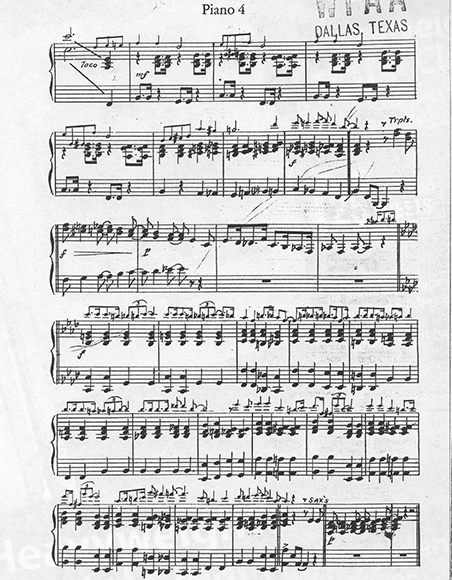
Three Questions is an initiative to share the value that our faculty, students, and others in the UNT community derive from using the Unique Collections at UNT Libraries.
-
How important are Unique Collections in your teaching, learning or research?
The Music Library’s Unique Collections are very important in my work. I use them in every class I teach: jazz history for undergraduates and graduate students and jazz analysis and research methods for graduate students.
-
How have Unique Collections changed the way you approach your research, teaching or learning?
Because we have the unique collections, we can go into more depth and do more with primary sources. For example, I assign my students to use the unique collections to work directly with scores of songs and stock arrangements. When we listen to Lester Young’s solo on “Shoe Shine Boy” we can learn more about that tune by examining the stock arrangement and the original sheet music. When we read music theorist Allen Forte’s analysis of the song “Alone Together”, which uses the composer’s piano harmonization, we can see that it in the original sheet music.

-
What do you want others to know about your research?
One point I try to make with every class as students begin research projects in the UNT library is that the library is more than books, CDs, and journals, more than citation formats: it represents the accumulated work of many people, including people in our community like the late Bob Rogers, whose years of volunteer work enable us to search the WFAA and WBAP collections and to search the collections of jazz songbooks by tune title. Students have the contents of donated collections of recordings to use because former Music Library Head Morris Martin drove the van to pick up these Unique Collections from donors. The music librarians he mentored carry on this work. Librarians do the essential work of preserving and organizing our cultural knowledge. Without them learning at a university would not be possible.
Regarding my own research: two library items represent my contributions to the scholarly conversation about Brazilian music: Music in Brazil: experiencing music, expressing culture and Cavalo-marinho pernambucano.
John Murphy attended UNT from 1981-1986, did a bunch of stuff you can read about here. He joined the UNT Jazz Studies faculty in 2001, and began serving as chair in 2008. Using the UNT library is one of his favorite things to do.


